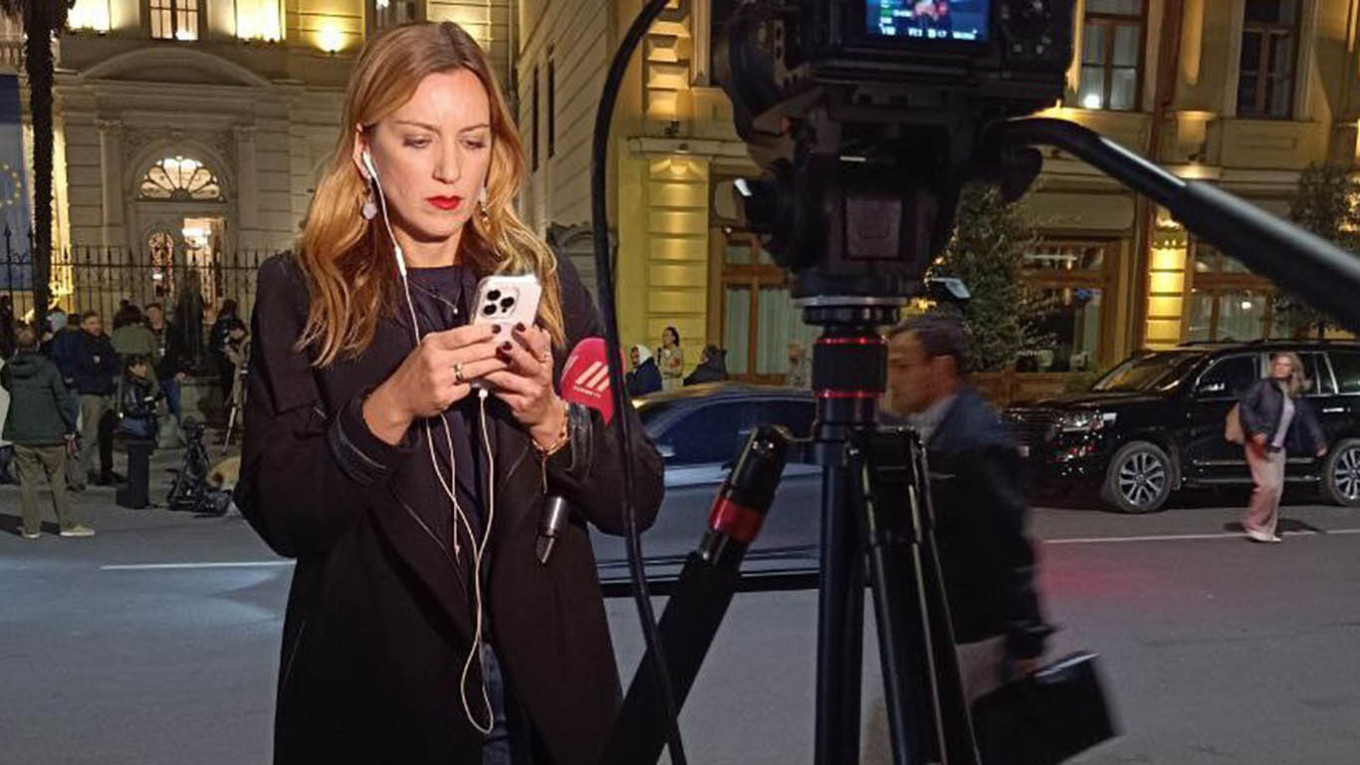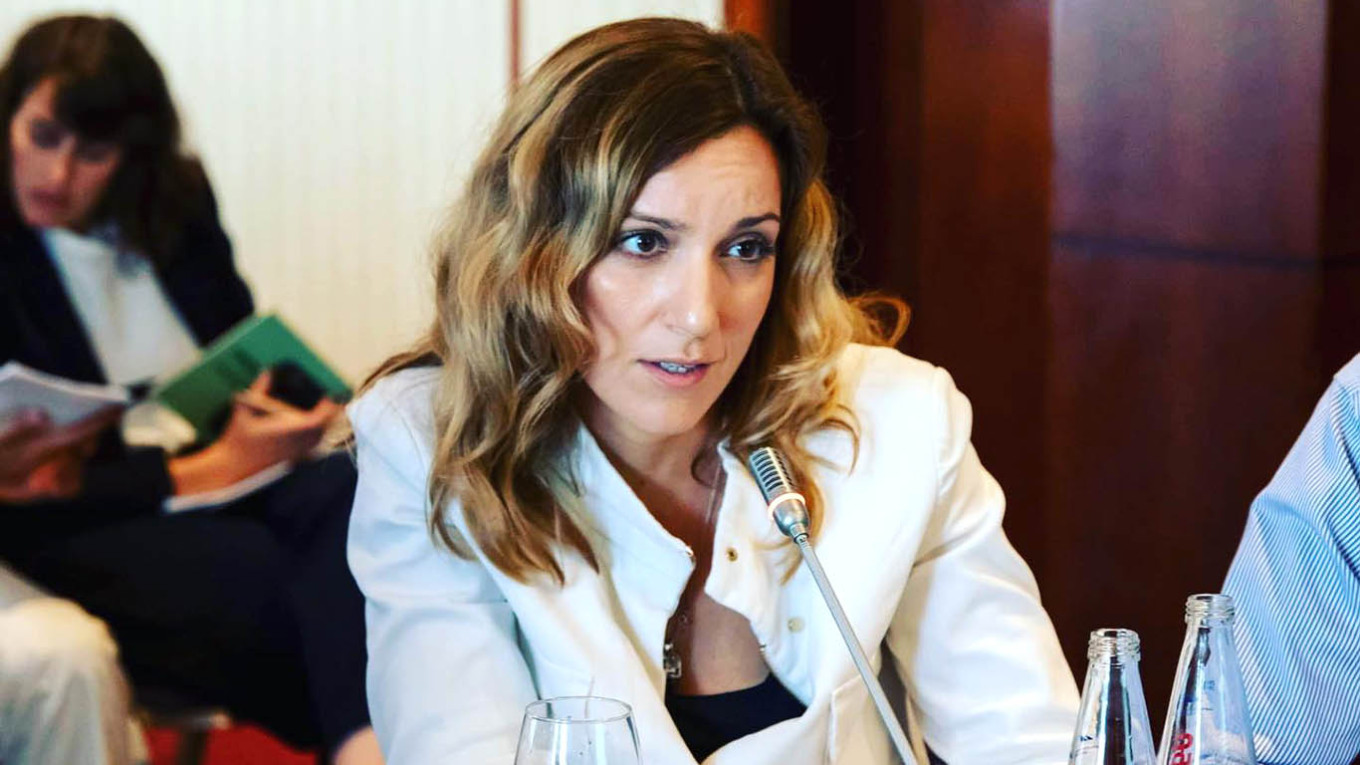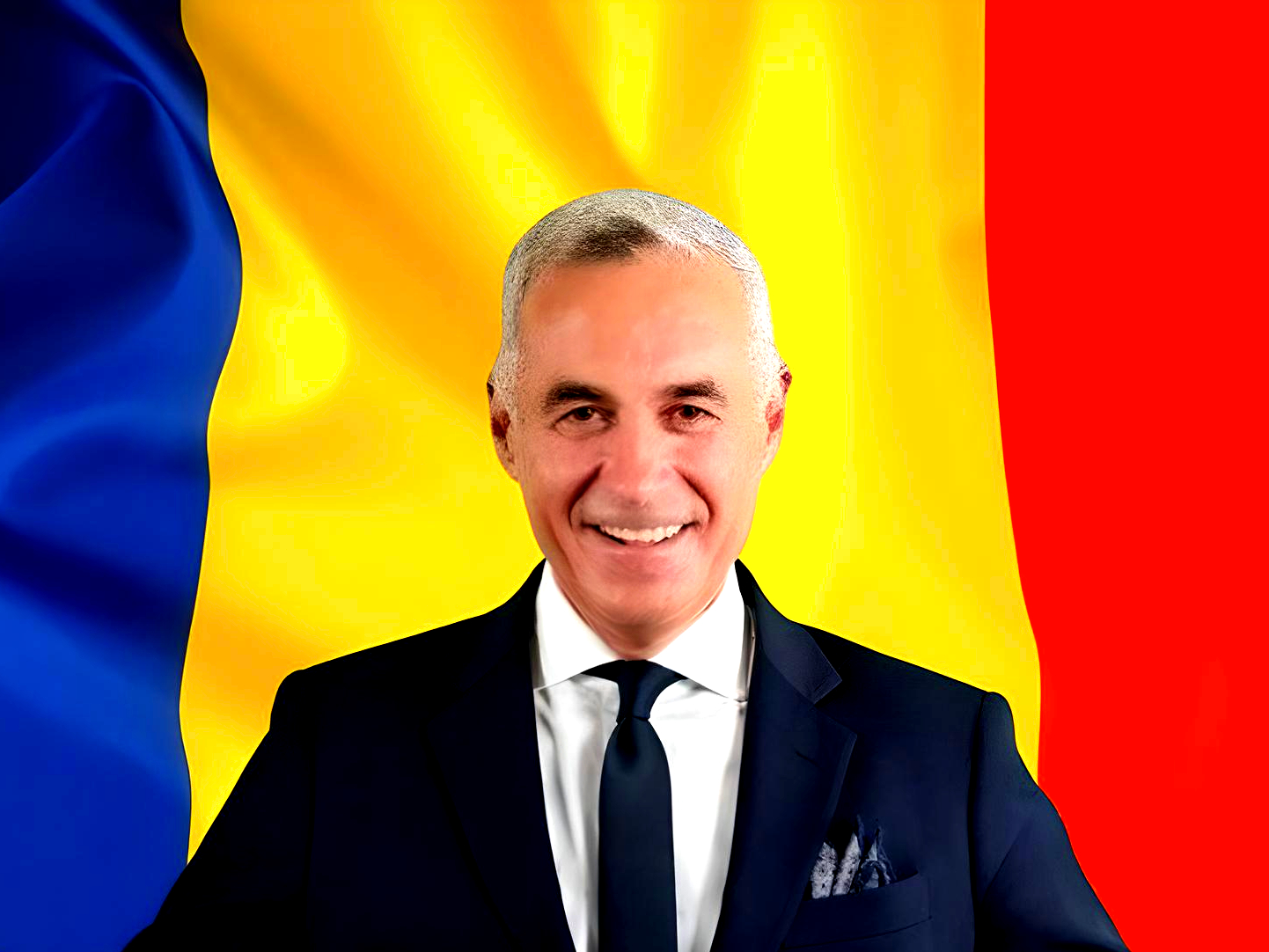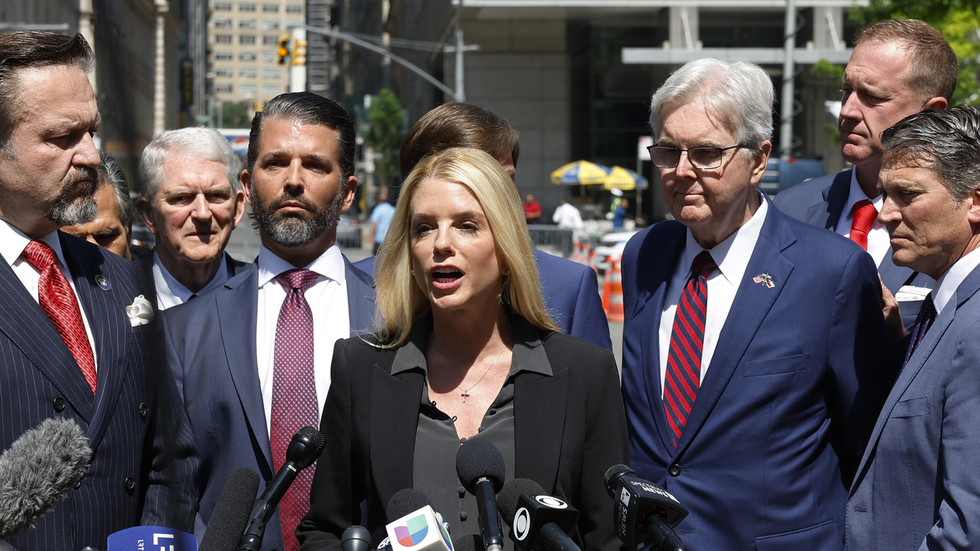On Nov. 26, The Moscow Times will host Women Against the Kremlin, a groundbreaking gathering of women leaders standing up against war and authoritarianism.
Among the event’s key speakers is Ekaterina Kotrikadze, a Georgian-Russian journalist and presenter at TV Rain, Russia’s only independent broadcaster that now airs from exile in Amsterdam.
Kotrikadze, 40, has been a pioneer of the #MeToo movement in Russia, as well as a vocal advocate for gender equality and democratic values.
The Moscow Times sat down with Kotrikadze ahead of the event to discuss the state of women’s rights in Russia, how Russian propaganda weaponizes women, and whether Russian journalism is still a male-dominated industry.
This interview has been edited for length and clarity.
The Moscow Times: In 2018, you became one of the first female journalists to speak up about harassment by State Duma Deputy Leonid Slutsky, who has since become head of the Liberal Democratic Party (LDPR) — a truly unprecedented and bold act for Russia at the time. Do you consider it a sort of #MeToo moment? Has the situation for women in Russia changed since then?
Ekaterina Kotrikadze: Of course, it was a #MeToo moment. I was the first to speak out, but I want to emphasize that I was outside of Russia when I did it. I don’t know what I would have done if I were in Russia, so I have immense respect for the women who followed my example and spoke out about harassment by a government official while still in the country.
I remember that after I did that, I was surprised by the enormous amount of hate directed at me. At some point, I decided to stop opening social media altogether because there were so many negative reactions.
Most critics were outraged that I stayed silent for seven years… But people who know and understand what sexual harassment is — in this case, we are talking about a young female journalist at the start of her career and an all-powerful government official — also understand how often victims are forced to stay silent because they feel frightened or guilty.
Aside from the hate, I also received plenty of words of gratitude, love and empathy from people. I received many letters and emails from women who realized that they don’t have to tolerate [harassment] and can speak up [following my example].
I was in the U.S. when I spoke out [about this incident] and I understood exactly how and what to say about it, thanks to the #MeToo movement.
Of course, opinions about that movement vary. And maybe there have been some distortions, and some people have been wrongfully accused. But for the most part, it was a movement of immensely brave women who found the courage to speak up. I covered it and read about it extensively — that’s when I realized that I, too, can do it.
Workplace harassment has always been very prevalent in Russia. The scale of it was catastrophic. In today’s Russia, it is simply a nightmare.
What can you say about Russian journalism in that sense? Is it a male-dominated industry? How hard is it for a woman to climb the career ladder or to simply do her job?
This is a complicated question.
If you turn on the TV in Russia right now you will see plenty of female anchors and celebrities — it has always been this way.
At the same time, when I started my first internship in Ostankino [television studio in Moscow] at 18, the first thing I realized was that to become a staff correspondent I would have to sleep with the producer. It was so painfully obvious. I felt so hurt because I thought that I could prove myself with my good journalistic work. But it simply wasn’t enough. So I spent the internship wandering the hallways of Ostankino [TV tower] because no one wanted to work with a young intern like me — this is a very common scenario.
 Ekaterina Kotrikadze.
Ekaterina Kotrikadze / Instagram
Ekaterina Kotrikadze.
Ekaterina Kotrikadze / Instagram
Female journalists in Russia have to work three, four or 10 times harder, and exert much more personal resources than men to make it in the industry.
The situation in Russian journalism reflects that in the rest of the country. We have a woman, [Federation Council Speaker] Valentina Matviyenko, standing third in the chain of command. Maria Zakharova is the face of Russia’s Foreign Ministry and [RT Chief Editor] Margarita Simonyan is the country’s chief propagandist.
But women [in these roles] are just a facade, one that conceals what is happening with women’s rights in Russia. Their presence doesn’t mean that women in Russia are free and empowered at all.
There is still no law criminalizing violence against women in Russia. It hasn’t been adopted even after the long and difficult fight that its female authors have put up [in the State Duma] — what else is this, if not a demonstration of the male-dominated society that Russia is?
Men rule everything in Russia. The worst part is that most of these men are Soviet-minded people of the past. They think that if a woman is beautiful, then she deserves to be harassed.
How would you describe the state of women’s rights in Russia today?
I would call it borderline catastrophic.
The general attitude towards women became even more dismissive amid the full-scale war with Ukraine.
Have you seen the pamphlets issued to women whose husbands came back from the frontlines? They advise women to never approach their husbands from behind so as not to frighten them, and never to raise their voices. They also advise women to simply endure any potential bursts of anger from their husbands. No one even thinks about advising women on how to save themselves from abuse, or offering professional psychological help to these men with PTSD.
How does Russian propaganda enable violence against women?
Their strategy is simple, but very effective.
They chose the discourse of “traditional family values.” What do they mean by that? They claim that “traditional family values” are about Orthodoxy, respecting one’s family, respecting the elderly and taking care of children. The propaganda also contrasts the “traditional values” of Russia with “immoral” Europe.
But when you dig a little deeper, you begin to see that Russian propaganda’s “traditional” family is a family where a husband rules everything and where the sole purpose of a woman is childbirth.
Even before this, many Russian women were sidelined, and deprived of all opportunities.
Millions of Russian women never became famous writers, engineers, astronauts or mathematicians because society and the state clipped their wings.
 Ekaterina Kotrikadze.
Ekaterina Kotrikadze / Instagram
Ekaterina Kotrikadze.
Ekaterina Kotrikadze / Instagram
What is it like to do journalism — especially TV journalism — in exile? What has changed in your day-to-day work since you left Russia?
TV Rain never tried to change, nor does it plan to, into media of a different kind, or with a different audience. We remain a Russian media. I think this is what makes TV Rain’s work so valuable.
Before we left [Russia in March 2022]...I had an on-air interview with investigative journalist Christo Grozev, who told me that we shouldn't be worried [about working in exile] in the modern world where the internet exists and where there are plenty of technologies that enable journalists to work remotely. I didn’t really pay attention to that remark back then, but when most of us actually left Russia, we saw with our own eyes that doing our work was still possible.
But then, we encountered another problem: TV Rain was labeled an ‘undesirable’ organization, which landed us in what seemed like a deadlock, because the Russian government now considers any cooperation with us a criminal offense.
All in all, covering Russia from abroad would not have been as difficult if not for the fact that Russian authorities are constantly thinking about TV Rain. They come up with new [restrictive] initiatives [against the channel] almost every month.
Given the circumstances, we are constantly in a state of battle. We have managed to survive thus far, but it is very difficult.
Russian opposition politician Ilya Yashin said in a recent interview with The Moscow Times that ‘it is impossible to change Russia from the outside.’ In your opinion, can Russians living abroad, and their allies, somehow help Russian women in the fight for their rights?
I think informing the people is crucial — I am answering as a journalist, I don’t know what my answer would be if I were a politician. But as a journalist, I know for certain what our mission at TV Rain is.
All female members of my editorial team are feminists. This is amazing. They inspire me. I think we, in turn, can inspire other people by example.
We have 20 million viewers and…we aim to give women in Russia the opportunity to breathe freely — even for a moment — while they are watching our broadcasts. We want to let them know that they can live a different life and that they have all the same rights as men.
I think information is immensely powerful, and immensely important, especially for people who think that everything is over and don’t see a way out. But there is a way out. When the moment comes, they will know the right thing to do.
And we [the journalists] will inform them when, and if, their rights are being violated. We will tell them to find a way out. Because even in Putin’s Russia one can find a way to leave their abuser — after that, the possibilities are endless.
A Message from The Moscow Times:
Dear readers,
We are facing unprecedented challenges. Russia's Prosecutor General's Office has designated The Moscow Times as an "undesirable" organization, criminalizing our work and putting our staff at risk of prosecution. This follows our earlier unjust labeling as a "foreign agent."
These actions are direct attempts to silence independent journalism in Russia. The authorities claim our work "discredits the decisions of the Russian leadership." We see things differently: we strive to provide accurate, unbiased reporting on Russia.
We, the journalists of The Moscow Times, refuse to be silenced. But to continue our work, we need your help.
Your support, no matter how small, makes a world of difference. If you can, please support us monthly starting from just $2. It's quick to set up, and every contribution makes a significant impact.
By supporting The Moscow Times, you're defending open, independent journalism in the face of repression. Thank you for standing with us.
Continue
![]()
Not ready to support today?
Remind me later.

 By The Moscow Times | Created at 2024-11-25 15:55:22 | Updated at 2024-11-27 01:44:49
1 day ago
By The Moscow Times | Created at 2024-11-25 15:55:22 | Updated at 2024-11-27 01:44:49
1 day ago








